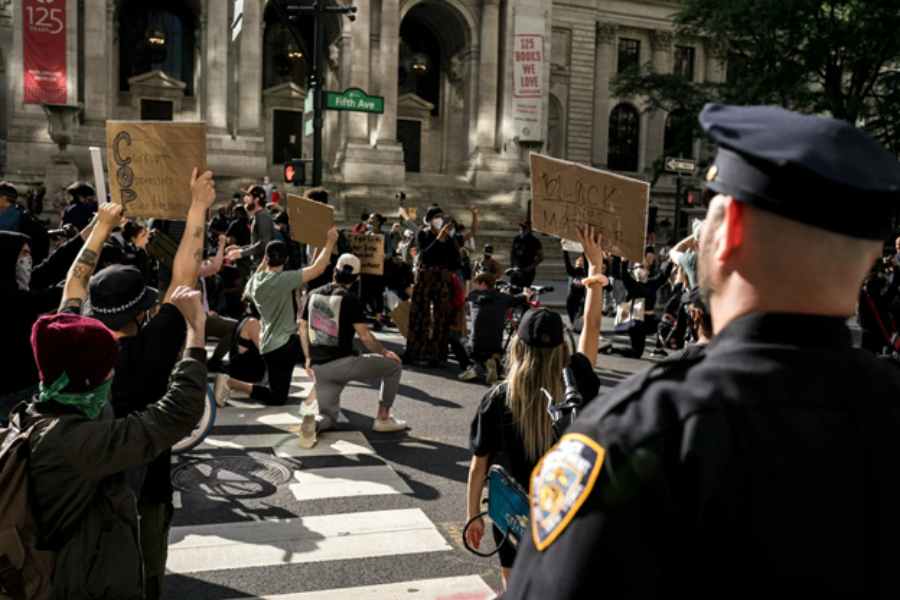Police violence has become a critical issue in society, drawing attention from citizens, activists, and lawmakers alike. High-profile cases of excessive force used by law enforcement have sparked widespread protests, conversations, and demands for systemic reforms. At its core, police violence undermines public trust in the justice system and perpetuates a culture of fear within communities. This situation raises fundamental questions about fairness, accountability, and the protection of human rights, highlighting the importance of standing against such practices. Understanding the broader implications of police violence is essential for effecting change and ensuring that law enforcement agencies serve and protect all citizens equally.
The Impact of Police Violence on Communities
Communities affected by police violence experience profound psychological and social repercussions. The trauma inflicted by incidents of brutality can have long-lasting effects, with numerous studies indicating that victims may suffer from anxiety, depression, and post-traumatic stress disorder. According to a report by the American Psychological Association, nearly 45% of individuals directly impacted by such violence report adverse psychological effects, demonstrating the need for greater awareness and community support.
Police violence leads to a breakdown of trust between law enforcement and the communities they serve. When residents live in fear of the very institution meant to protect them, it creates a chasm that is difficult to bridge. Police-community relations suffer, resulting in decreased cooperation with law enforcement officials when it comes to crime reporting and investigations. This detrimental cycle furthers systemic inequalities and fosters an environment of mistrust that can escalate tensions within the community.
The Role of Activism in Combating Police Violence
Activism plays a pivotal role in addressing the issue of police violence, bringing awareness to injustices, and advocating for legal reforms. Grassroots movements have emerged, empowering individuals to fight for justice and accountability through awareness campaigns, protests, and social media initiatives. These collective efforts often result in increased visibility of these issues, compelling lawmakers and organizations to take action. The Black Lives Matter movement, for instance, has been instrumental in highlighting police violence, driving policy changes, and promoting community-led initiatives to reduce harmful policing practices.
Effective activism demands collaboration across various sectors of society, including non-profits, legal experts, and educators. Engaging lawyers and legal advocates, including a montgomery police brutality lawyer, highlights the importance of ensuring legal accountability for perpetrators of abuse. Through public support and legal action, activists can hold law enforcement accountable for their actions, leading to systemic changes that benefit communities at large.
The Importance of Legal Accountability
Legal accountability is indispensable in the fight against police violence. The concept revolves around holding officers accountable for their actions and ensuring that victims of brutality receive justice. Far too often, incidents of police misconduct go unpunished, leading to a culture of impunity within law enforcement agencies. Significant reforms are necessary to ensure that victims have recourse to legal action and that police officers face consequences for their misconduct. When officers are held accountable, it can lead to reduced rates of police violence and an increased sense of justice in the affected communities.
Independent Oversight and Officer Training
One effective approach to promoting accountability is implementing independent oversight boards tasked with monitoring police actions. These boards can investigate complaints and review incidents of excessive force. By providing transparency, they ensure that police actions are scrutinized, fostering a culture of responsibility within law enforcement agencies. Comprehensive training for officers in de-escalation techniques and community engagement can also help mitigate violent encounters and improve public interactions with law enforcement.
Policy Reforms for Long-Term Change
To effectively combat police violence, policy changes at both local and national levels are imperative. Addressing systemic issues within police forces, such as lack of training, inadequate resources for counseling, and insufficient accountability structures, will create safer environments for communities. Legislative reforms should focus on banning chokeholds and other dangerous restraint techniques, implementing body-worn cameras, and mandating transparency through public reporting on police misconduct. At the national level, advocating for comprehensive legislation, such as the George Floyd Justice in Policing Act, seeks to promote accountability, transparency, and police reform. These efforts can redirect public funding to community services, focusing on preventative measures and quality-of-life improvements for marginalized communities. Collaboration between local governments, state agencies, and citizens is crucial in creating policies aimed at reducing violence in policing.
Creating Safer Communities Through Advocacy
Ultimately, combating police violence extends beyond policy reform; it centers on creating safer communities for all. Advocacy efforts serve to empower individuals to voice their concerns and influence change directly within their communities. Educational programs that foster discussions around policing, civil rights, and community engagement promote a better understanding of individuals’ rights as citizens, further enhancing public safety. Building inclusive coalitions among various community members, activists, and civil rights organizations fosters an environment conducive to ongoing dialogue. These conversations break down barriers and grant communities the opportunity to collectively address grievances. By standing together, individuals strengthen their voices and amplify the call for justice, leading to a more equitable society.
By working to mitigate police violence and ensuring accountability, communities can begin to rebuild trust and foster a sense of safety for everyone. Engaging in conversations and actions can transform existing dynamics, creating a culture of respect and equality essential for a thriving society.


